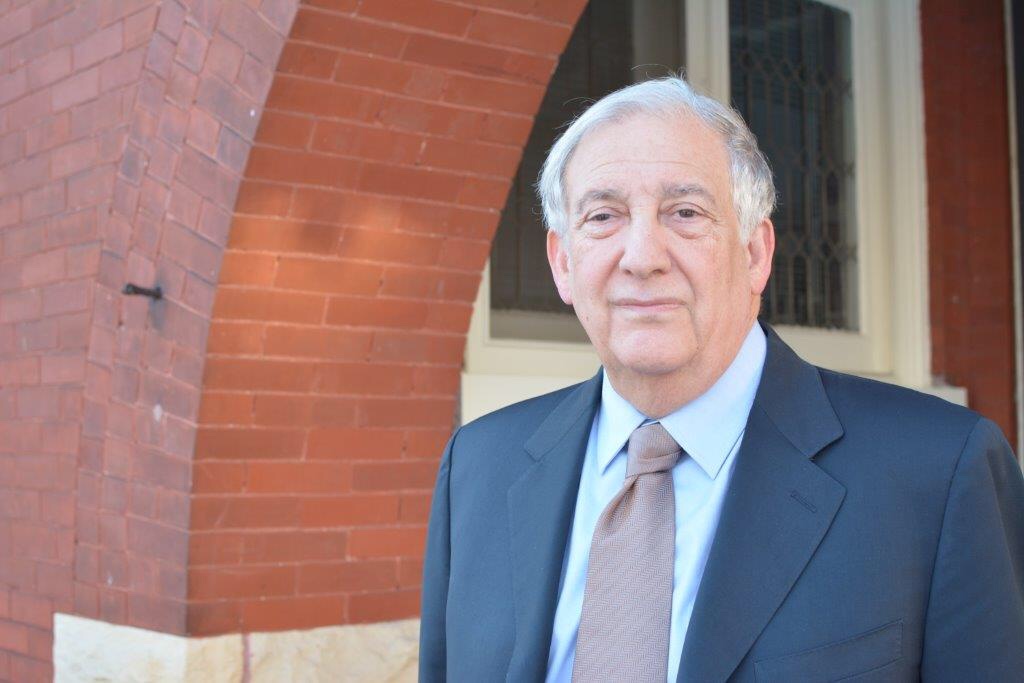
One of America’s leading sociologists and an expert in symbolic interactionist theory, Gary Alan Fine, a professor of sociology at Northwestern University, will speak to campus Monday, April 16 at 7:30 p.m. in Dow A & B.
Fine will explore how examining dust, literally and figuratively as the unexamined parts of life, illuminates the bread-and-butter sociological topics of race, class, gender, age, and national identity.
“This is going to be deliberately pitched to a wider audience,” Peter Blum, professor of philosophy and culture and the director of the Sociology and Social Thought program at Hillsdale College, said. He said the talk’s focus on small groups rather than big institutions might appeal to people who dislike sociology’s collectivist theories.
Fine has written ethnographies, or immersive studies where he spent time in small group cultures as a participating observer. He has studied Little League teams, restaurant workers, mushrooms collectors, high school debate clubs, and people who play Role Playing Games.
Blum said Fine argues in his book, “Tiny Publics” — assigned reading for the sociology class Interaction and Social Definition — that small groups are key to understanding society because they are tiny enclaves in which people participate in public life.
“We’re not just puppets. We’re genuinely actors doing things purposefully and taking each other into account when we do that,” Blum said. “He’s not going to throw statistics at you. He’s worried about meaning.”
Sophomore Ethan Visser, who plans on majoring in psychology, is reading “Tiny Publics.” Visser said the book addresses abstract concepts, but that the research into Little League baseball teams and mushroom collectors makes some of the ideas tangible.
Visser, who plans on attending Monday’s lecture, said Fine is good at explaining his ideas, so it won’t be hard for people unfamiliar with the subject matter.
“It’ll be cool to meet him,” Visser said. “It’ll just be good to hear him verbalize everything, it’ll be different than reading a book. It’ll be good to get the material in a different format.”
Visser said his class, and particularly the book, have given him new eyes to see the ways in which reality is socially constructed. Despite this, he said some people tease him about sociology being subjective. While it can have that element, he admitted, Visser sees sociology as one way to see the world through a social lens.
“Don’t disregard sociology,” Visser said. “It’s really interesting to learn these things and then look at the world in a different way. It makes you, maybe not cynical, but it makes you understanding of how things work and gives you a different attitude toward everything. It’s not something you get a lot, especially at Hillsdale. I think there’s substance to it.”
Professor of Psychology Collin Barnes said the fact that he was never exposed to Fine’s work illustrates the divide between social science and social psychology. Although Fine is new to him, he said his respect for Blum’s work and thinking — and Barnes’ own disenchantment with his field — makes him interested in what Fine has to say.
“Why ought this presentation be attractive to students? I think in response to that question, I would say, ‘do you care to be intellectually honest?’” Barnes said. “So I would encourage students to do it because they don’t get much of it, and it would be eye-opening at the very least, and then they could make a determination about it.”
Barnes said he’s receptive to Fine’s approach, but that a parallel to his work is largely lacking in sociology; even though Fine’s method is precisely what social psychology ought to be doing.
“A move away from the quantitative approach and experimentation in social psychology, and toward treating individuals as individuals that can communicate stories and narrative about their experience, personally and within some sort of communal environment, I think that that’s the heart of the matter,” Barnes said. “Something can be learned from understanding Little League teams and mushroom farmers.”

